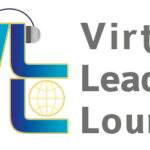Effective team work depends on productive relationships
This, therefore, has to be a key competency as well for virtual leaders.
Here we are again with the next, the third, competency for virtual leaders which I would like to present and share some thoughts on how you can develop this further to become more effective.
The first 2 were self-leadership and effective communication.
Let me first describe again what I mean with this competency today.
Productive relationships in any context have trust as one of the key elements which makes the interaction really productive.
In my experience, trust is the most crucial element for virtual teams to be productive or reach high performance levels, because of the physical separation of the team members. Amongst the many models about trust, describing components thereof and how they contribute to it, I prefer a simple one which focuses on two aspects of trust, called transactional and transformational. Transactional relates to the trustworthiness of the interactions. Transformational relates to the quality and depth of a relationship.
As the leader of a virtual team it is your responsibility to foster productive relationships, hence, develop and maintain high levels of trust amongst your team members.

Because of the physical separation of members of virtual teams the natural way to develop trust in a virtual context starts with the transactional element. Here it is important to pay attention to how trustworthy people interact, live up to their commitments towards others, and competently contribute to the team’s workload/objectives. As it is more difficult to develop deeper personal connections over a distance special attention is required for the transformational trust to develop amongst team members.
Fertilising ideas for trust
Here are some ideas how you can actively develop transactional and transformational trust:
Invest some time with your team developing the right rules of engagement and agreeing appropriate values for the team with specific attention to building trustworthiness into the interactions.
Tempting as it might be to focus on task execution when working with your team, plan extra time in the live interactions to exchange at a personal level too in order to get to know each other’s human side and social life better.
I’ve also written a special blog about how you as a leader can develop and use trust in a virtual context. You can read more about it here .
If you want to go even deeper and look into a more elaborate model of trust and how to build it in your virtual team I recommend to read Stephen Covey’s book ‘Speed of Trust’.
As always, if you are interested to have an in-depth conversation with me about this subject please get in touch direct.
Join us online! 
We explore this and other business relevant subjects in our Virtual Leaders Lounge. This is an informal online meeting of maximum 10 business leaders where we discuss challenges in virtual teams and organisations and share best practices. No PowerPoint is used, no prep work required!
Check it out here or register direct so you get the invitations and have a chance to get one of the 10 seats available for a lounge session.



